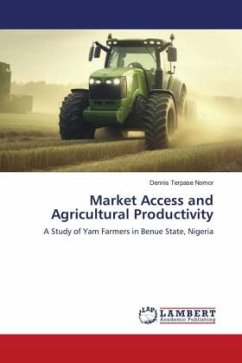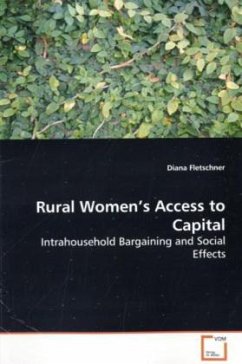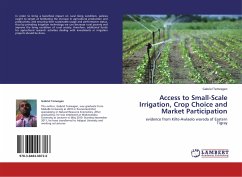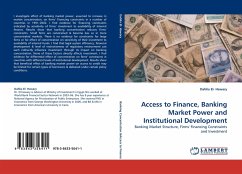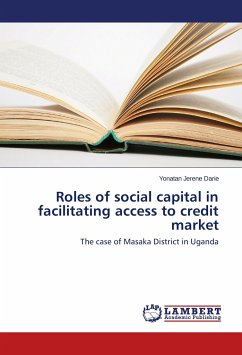
Market access and agricultural production
The case of banana production in Uganda
Versandkostenfrei!
Versandfertig in 6-10 Tagen
45,99 €
inkl. MwSt.

PAYBACK Punkte
23 °P sammeln!
This study analyses smallholder production response to farm contraints, and development of product markets and off-farm employment opportunities. Results show imperfections in labour and food markets that cause farmers to allaocate land to crops that are less profitable but most suited to satisfying household food needs. High food prices induce farmers to rely more on own farm production. Improved roads, education and access to credit and extension improve productiviy and technical efficiency. Labour suppyly is positively related to shadow wages and negatively related to shadow incomes. This i...
This study analyses smallholder production response to farm contraints, and development of product markets and off-farm employment opportunities. Results show imperfections in labour and food markets that cause farmers to allaocate land to crops that are less profitable but most suited to satisfying household food needs. High food prices induce farmers to rely more on own farm production. Improved roads, education and access to credit and extension improve productiviy and technical efficiency. Labour suppyly is positively related to shadow wages and negatively related to shadow incomes. This implies that farmers are responsive to economic incentives. Access to off-farm opportunities takes away the most productive labour from farm production. Education and road access positively impact on time allocated to off-farm activities while farm size neagtivley affects time in off-farm activities. Investment in education, rural roads and financial institutions is likely to help alleviate the bottlenecks in the labour, food and financial markets and improve efficiency in recource allocation between farm and nonfarm activities.



